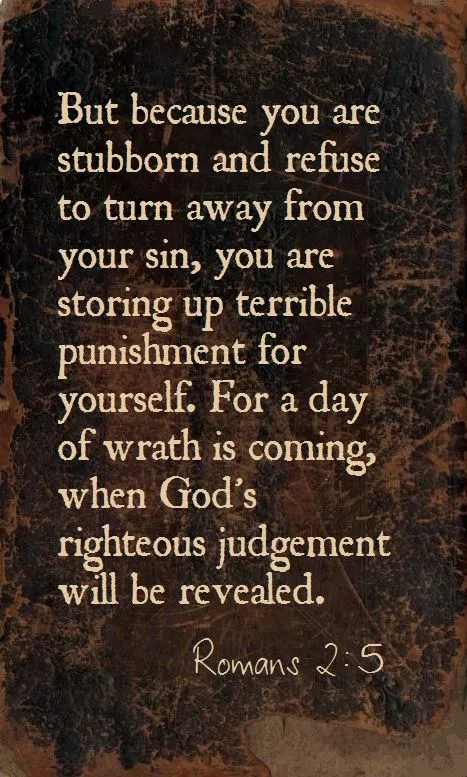Your cart is empty
Understanding the Consequences: Do You Fear the Wrath of the Gods in OSRS?

In the world of Old School RuneScape (OSRS), the gods play a crucial role in shaping the game’s lore and player experience. The concept of divine intervention and the consequences of angering these powerful beings add depth to the gameplay. Players often find themselves grappling with the implications of their actions, leading to a unique blend of strategy and storytelling. This article delves into the consequences of invoking the wrath of the gods and explores the rich lore that surrounds them.
The pantheon of gods in OSRS is rich with history, each deity possessing distinct characteristics, motives, and followers. At the core of this lore are the primary gods: Saradomin, Zamorak, and Guthix. Saradomin represents order and wisdom, seeking to guide humanity towards a righteous path. In contrast, Zamorak embodies chaos and power, advocating for the strength of the individual and the overthrow of the established order. Guthix, the god of balance, strives to maintain equilibrium between the forces of light and darkness.
Each god has a profound impact on the world of Gielinor, influencing various factions and events throughout the game. The ongoing conflict between Saradomin and Zamorak is a central theme, with players often caught in the crossfire of their divine rivalry. This struggle has led to historical events such as the God Wars, where followers of these deities engaged in fierce battles, leaving a lasting mark on the landscape and its inhabitants. The aftermath of these wars continues to affect the game, as players can explore ancient ruins and fight powerful bosses that were once worshipped.
Additionally, lesser-known gods and entities, such as Armadyl and Bandos, also contribute to the intricate web of divine influence. Armadyl, the god of justice, seeks to protect the innocent and uphold righteousness, while Bandos, the god of war, revels in chaos and strength. The interactions and conflicts between these deities create a dynamic universe, where players must navigate their allegiances carefully.
In OSRS, the choices players make can invoke the wrath of these gods, leading to consequences that resonate throughout the game. Engaging in certain quests, combat, or even choosing sides in the ongoing wars can result in divine retribution. This adds a layer of complexity to the gameplay, as players must consider the potential repercussions of their actions on their standing with the gods. Ultimately, understanding the lore behind these powerful beings not only enriches the player’s experience but also heightens the stakes in their journey through Gielinor.
Significance of the Gods in Gameplay

In Old School RuneScape (OSRS), the gods play a crucial role in shaping both the lore and the gameplay experience. Each god represents different aspects of the game, influencing quests, items, and player interactions. Understanding these divine entities can greatly enhance your gameplay.
Here are some key points to consider regarding the significance of the gods:
- Quest Lines: Many quests in OSRS revolve around the gods and their conflicts. For example, the “God Wars Dungeon” is a significant area where players can engage with the minions of various gods, adding depth to quest experiences.
- Prayer Mechanics: Players can utilize prayers associated with the gods to gain various bonuses during combat. The choice of god can impact your strategy significantly, especially in high-stakes situations.
- Items and Equipment: Certain weapons and armor are tied to specific gods. Equipping these items often provides unique bonuses and boosts, making them desirable for both PvE and PvP scenarios.
- Community and Clan Dynamics: Players often form clans based on their allegiance to a particular god, leading to unique community interactions and events.
In summary, the gods are more than just background lore in OSRS; they actively influence the mechanics and community aspects of the game. Understanding their significance can enhance your overall experience and strategy.
Common Myths and Misconceptions
When it comes to the gods in OSRS, there are plenty of myths and misconceptions that players may encounter. These misunderstandings can lead to confusion and may even affect your gameplay experience. Let’s break down some of the most common myths:
- Myth 1: All gods are equally powerful. This is not true. Each god has unique strengths and weaknesses, with some being favored in specific scenarios or by certain player builds.
- Myth 2: Praying to a god affects your RNG (random number generation). In reality, your luck in drops and critical hits is not influenced by your allegiance to any particular god.
- Myth 3: You need to follow a god to use their items. While some items are tied to specific gods, players can use them regardless of their chosen deity. However, the benefits might be maximized if you align with that god.
- Myth 4: God Wars Dungeon is only for high-level players. While it can be challenging, there are ways for lower-level players to participate, especially with the help of friends or clan members.
Understanding these common myths can help you navigate the game more effectively and enjoy the rich lore surrounding the gods without unnecessary confusion. So, the next time someone mentions the wrath of the gods, you can confidently engage in the discussion!
How to Prepare for Encounters with the Gods
When it comes to facing the wrath of the gods in Old School RuneScape (OSRS), preparation is key. Whether you’re planning to take on a boss influenced by these divine beings or just want to avoid their ire during your adventures, here are some effective strategies to consider:
- Research the Gods: Familiarize yourself with the different gods and their unique characteristics. Each god has its strengths and weaknesses, and understanding these will give you a tactical advantage.
- Gear Up: Equip yourself with the best gear available for your combat style. Make sure to choose items that not only boost your stats but also provide protection against specific divine wrath effects.
- Potions and Food: Stock up on potions and food that can enhance your abilities or restore your health during encounters. High-level potions can significantly improve your performance in battle.
- Team Up: Don’t go it alone! Teaming up with other players can increase your chances of survival. A well-coordinated team can tackle the challenges posed by the gods more effectively.
- Practice Makes Perfect: Before you dive into an encounter, practice your combat skills. Familiarize yourself with the mechanics of the encounter so you can react quickly when the situation demands it.
By following these preparation tips, you can approach your encounters with the gods in OSRS with confidence, minimizing the risk of facing their wrath.
Player Experiences: Tales of Wrath and Consequences
Every player in OSRS has a story about encountering the wrath of the gods. These experiences can range from humorous blunders to epic battles that left a lasting mark on their gaming journey. Here are a few tales that highlight the consequences of angering the divine:
| Player | Encounter | Outcome |
|---|---|---|
| Player A | Attempted to steal from a god’s altar | Instant death and a loss of items |
| Player B | Challenged a god in combat without preparation | Defeated and lost significant experience |
| Player C | Accidentally angered a god during a quest | Fled for safety but lost quest progress |
These tales serve as a reminder that the gods in OSRS can be unpredictable and merciless. Players learn valuable lessons from their encounters, often shaping their future gameplay strategies. Whether it’s a humorous moment of folly or a sobering consequence, each experience contributes to the rich tapestry of player stories in the world of Gielinor.
Understanding the Consequences: Do You Fear the Wrath of the Gods in OSRS?
In Old School RuneScape (OSRS), the gods play a significant role in shaping the lore and gameplay experience. Players often find themselves pondering the implications of invoking the wrath of these deities. Understanding the consequences of divine anger can be crucial for your success in the game.
Here are some key points to consider:
- Divine Favor and Disfavor: Aligning with a god can bestow benefits, but angering them can lead to dire consequences.
- Quests and Lore: Many quests revolve around the interactions between players and gods, often requiring players to choose sides.
- Combat and PvP: Players may face penalties in PvP situations if they have angered a god, affecting their combat effectiveness.
- Resource Management: Divine wrath can lead to a loss of resources, impacting your ability to progress.
To further illustrate, here is a table showing the potential consequences of invoking the wrath of various gods:
| God | Consequence |
|---|---|
| Zamorak | Increased chance of being attacked by high-level monsters. |
| Saradomin | Loss of access to certain healing items. |
| Guthix | Reduced experience gain in specific skill areas. |
Understanding the balance of power between players and the gods can enhance your gameplay experience. Weigh your choices carefully and consider the potential consequences of your actions in the world of OSRS.
Conclusion: Embracing or avoiding the wrath of the gods in OSRS ultimately depends on your playstyle and objectives; understanding their influence can help you navigate the challenges and rewards they present.

